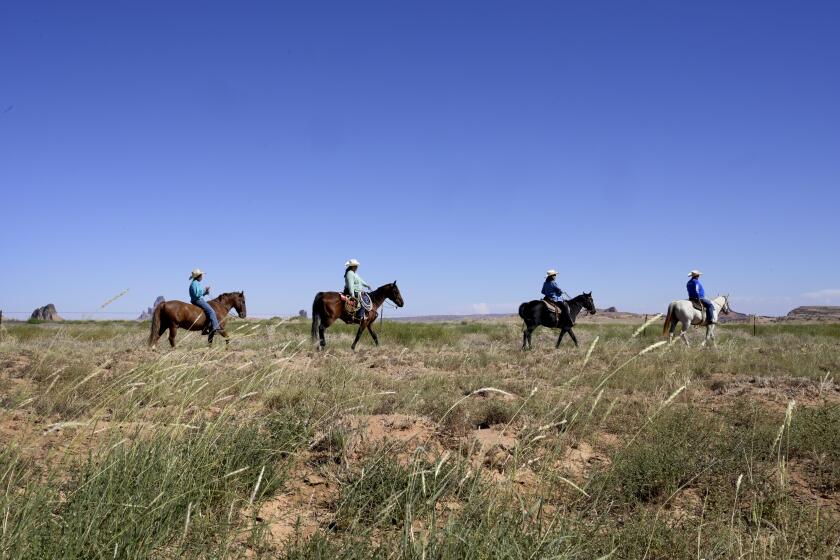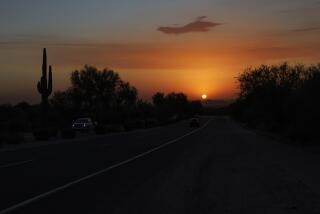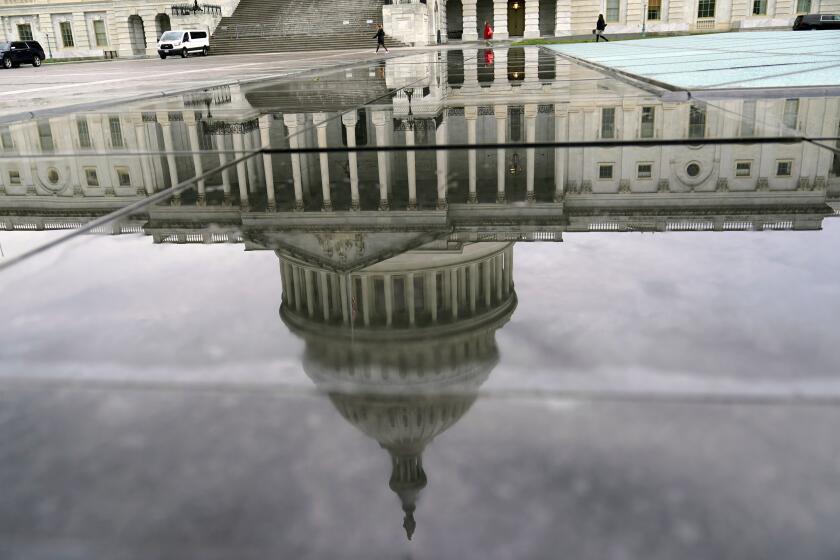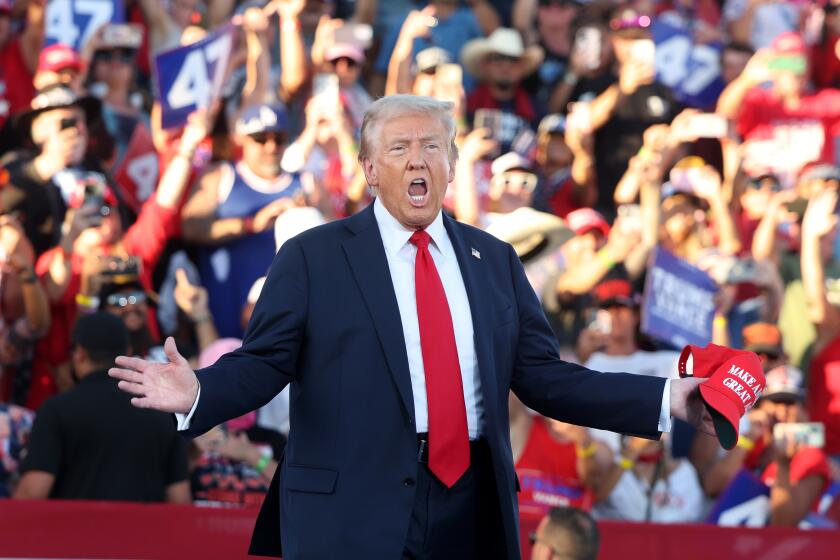
- Mormons were the most Republican-leaning religious group in the country, the Pew Research Center found in 2016.
- Both the Harris and Trump campaigns have launched efforts targeting Latter-day Saints voters.
Jeremy Spilsbury never suspected that anything was off. He attended services at his local Church of Jesus Christ of Latter-day Saints ward, stayed for a meeting with the missionary committee and then bid them farewell — including his across-the-road neighbor.
But as Spilsbury pulled into his quiet, residential street in this Phoenix suburb of about 511,000, he noticed the neighbor’s new yard sign: “Cucks for Harris.”
Spilsbury did a double take. Then he googled the offending word.
A “cuck,” according to the Merriam-Webster dictionary, is “often used as an insulting and contemptuous term for a man who has politically progressive or moderate views.” The word has sexual connotations, too, meaning a man whose female partner is unfaithful.
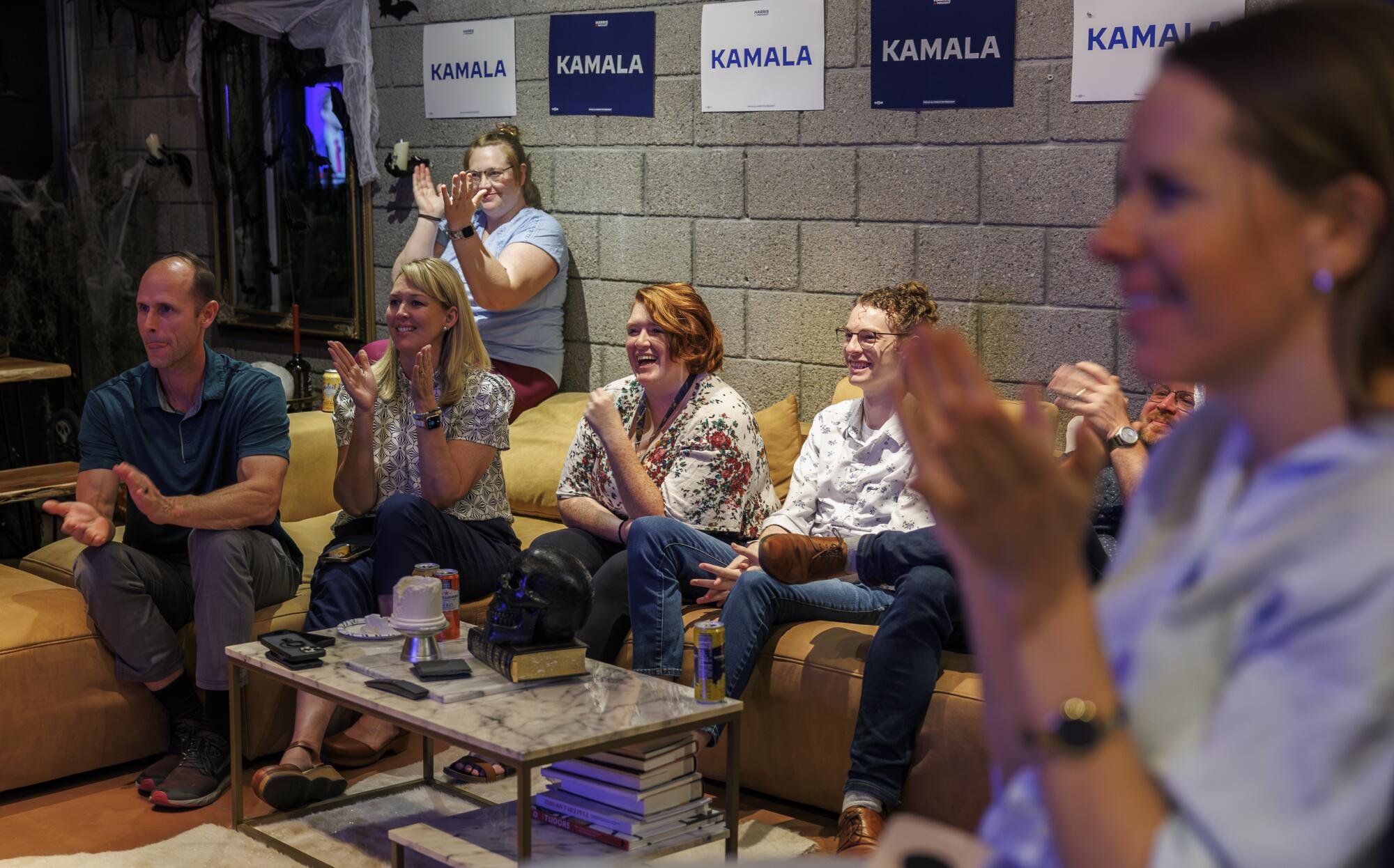
“When I found out what it meant, I was kind of appalled, because it’s obviously designed to be as offensive as possible,” said Spilsbury, who had a “Republicans for Harris-Walz” sign in his own yard.
The neighbor’s sign, while biting, underscored an emerging reality in Arizona’s sizable Latter-day Saints community — that while church members are overwhelmingly Republican, there is some erosion in their traditionally airtight support for Republicans.
“There has been a long-standing belief from people who have not been LDS that Mormons are homogeneous in their beliefs and their voting and the way they enact living their faith,” said Brittany Romanello, a cultural anthropologist at Arizona State University who has studied Mormon identity and was raised in the church.
Mormons were the most Republican-leaning religious group in the country, the Pew Research Center found in 2016. But “the politics and willingness to openly disagree with one another in these LDS spaces … is becoming more and more apparent,” Romanello said.
Trump reduced national monuments before Biden restored them. The Project 2025 blueprint says public lands need to remain open to a wide range of uses.
Vice President Kamala Harris’ campaign team is hoping to collect any stray votes — especially in Mormon-heavy battleground states such as Nevada and Arizona, where the church numbers about 443,000 members and polling shows Harris and Trump neck and neck. Harris appealed to Latter-day Saints members at an appearance in Scottsdale Friday, saying, “I am committed to all of you to be a president for all Americans.”
Her campaign in Arizona launched a Latter-day Saints advisory committee weeks ago, and another one in Nevada on Monday. Trump’s campaign announced a Latter-day Saints for Trump group Tuesday.
The budding Latter-day Saints groups for Harris are an aberration, said Tara Rowland, the neighbor with the “cucks” sign.
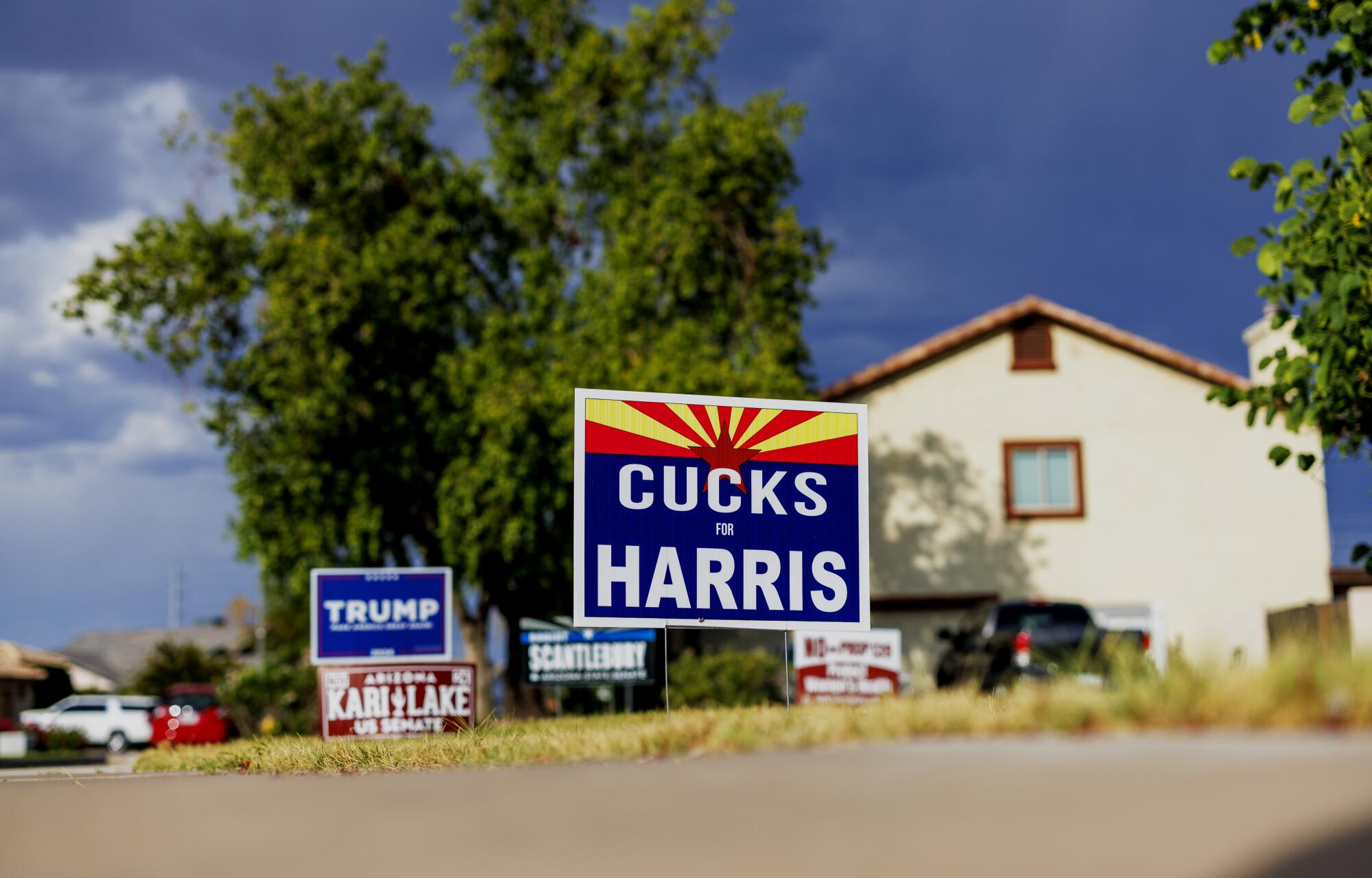
“They do not represent the majority,” she said. “There’s these few people in our congregation who everybody knows is full of it.”
The church takes pains to keep its official positions apolitical, and last weekend, one of its senior leaders, Dallin H. Oaks, encouraged members to be civil ahead of the November election. Despite its pledged neutrality, the church has waded into issues it considers moral, supporting conservative views on issues such as abortion and LGBTQ+ rights.
“Mormon socialization from a very young age encourages you to participate in civic engagement. The importance of voting … of being prayerful,” Romanello said. “And that means that you don’t align yourself with a particular party.”
Like many church members, Rowland has been active in politics since she was 14, mostly supporting Republicans, though she has voted for non-Republicans in local elections.
Although Trump “says stupid, clownish things, and he’s a buffoon,” Rowland said, “he’s the best choice of the two.”
“I believe that family and religion and God and the sanctity of life is important, and Trump is the most in line with our values,” Rowland said, adding about her neighbors, “If they were voting their values, they would not be voting for Harris-Walz.”
LDS for Harris-Walz
About a dozen Mormons gathered in a church member’s Phoenix living room recently for a “Latter-day Saints for Harris-Walz” vice presidential debate watch party.
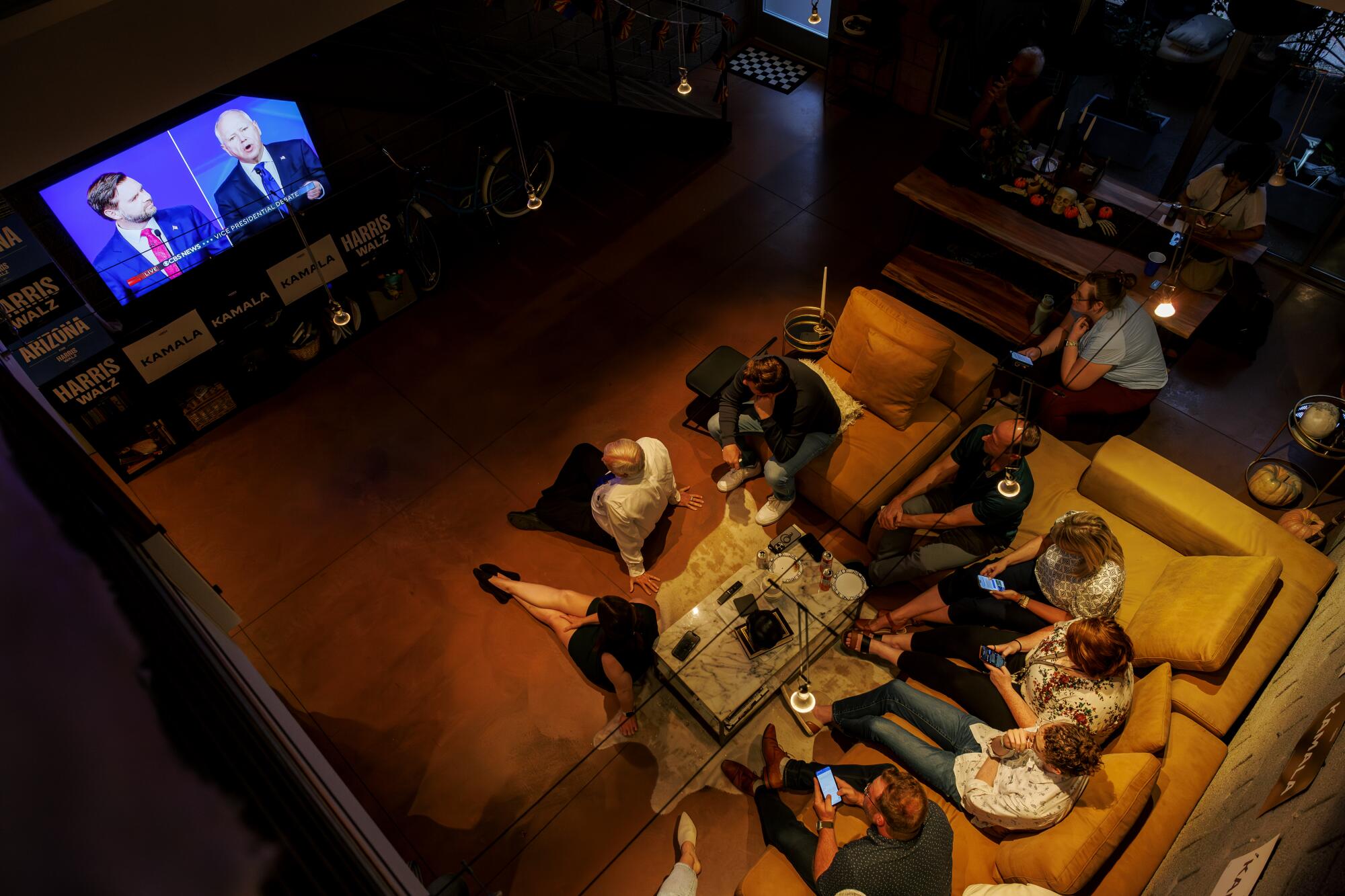
Within minutes of arriving, Jeremy and Julie Spilsbury were swapping names of congregants they shared in common with Bobby Parker, 79, who said he lost many of his ties to the community when he came out as gay about 20 years ago.
“It’s like being a Republican for Harris — you’re not supposed to fit!” Julie Spilsbury joked, and they all laughed.
For most of their lives, Jeremy and Julie Spilsbury were in step with their church’s political culture. They avidly listened to conservative talk show hosts Rush Limbaugh and Sean Hannity. They voted Republican — including for Trump.
But things started to change around 2020.
Native Americans in Arizona heavily favored Joe Biden in 2020. Democrats hope they can help Harris defeat Trump in the state.
“He always jokes, it’s because of Trump that we’ve changed a lot of our thinking politically, religiously,” Julie Spilsbury said of her husband. “It’s actually been a good thing for us in our personal growth.”
In 2020, Jeremy Spilsbury was serving as bishop of his ward, a volunteer role in addition to his job running a small arborist business. When one of his employees assumed he was voting for Trump again, Spilsbury knew he didn’t want to keep quiet.
He typed up what would become the first of several Facebook posts, alerting his community to his new political views.
The backlash was almost immediate. Though few people confronted him in person, Spilsbury said he heard that many thought he had been “deceived.” Rowland said he “caused such a division between our congregation.” Congregants asked for him to be “released” as bishop (his term expired in 2021).
But he was committed to his increasing outspokenness. Soon, he quit his job to go back to school and study peace and conflict. He refused to leave the church or Mesa.
“To use a religious term, I’m a wolf in sheep’s clothing,” Spilsbury said. “There’s no one more dangerous than an insider pretending to be part of the group.”
Then Julie Spilsbury was elected to the Mesa City Council and a few months later, her first controversial issue reached the agenda: an ordinance prohibiting discrimination in public accommodations, employment and housing.
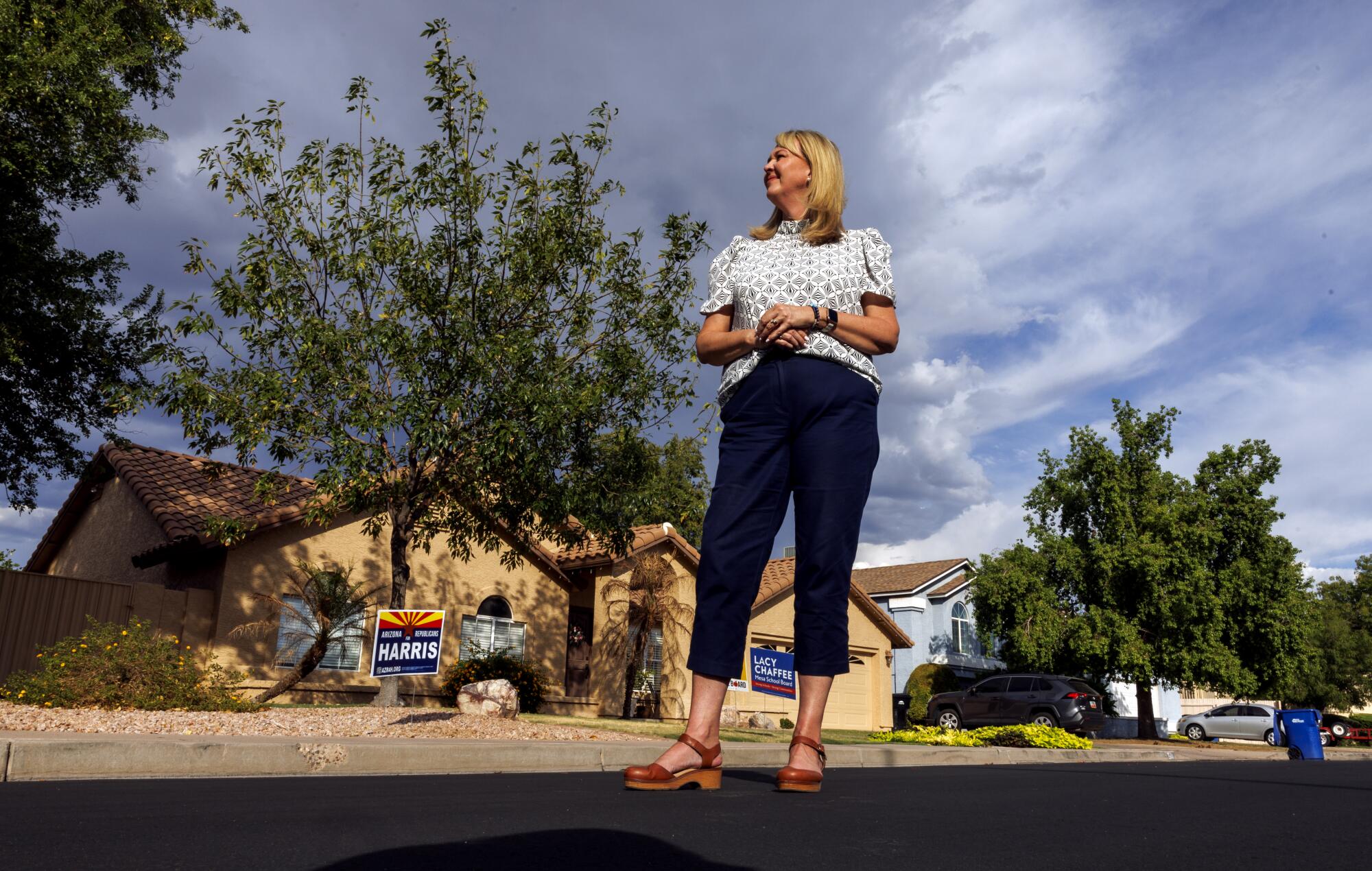
The ordinance caused consternation across Mesa, home of the state’s first Latter-day Saints temple and a concentrated Mormon community in Arizona. A local representative of the church weighed in, signing a letter along with other interfaith leaders and Sen. Kyrsten Sinema (I-Ariz.) in support of the ordinance. But others, including Rowland, spoke against it at City Council meetings.
“Say a baker doesn’t want to make a cake for a transgender wedding or something like that,” Rowland said in an interview. “They should have the ability, that’s their business.”
“A lot of LDS people thought … ‘You’re doing something that’s contrary to our religious beliefs.’ When, in fact, that was 100% not true,” said Mesa Mayor John Giles, a Republican and church member. “The LDS church leadership is actually far more progressive than a lot of these traditional, kind of fundamentalist people in the church. And they just kind of refuse to acknowledge that they’re out of step with where the church is.”
The ordinance ultimately passed, and an attempt to put the issue to voters as a referendum was dropped.
“It’s something I’m very proud of, but I have a lot of people who hate me now because of it,” Julie Spilsbury told Parker at the watch party. She flashed her phone’s lock screen, featuring a bright, neon-colored rainbow flag.
“I was just amazed by how wonderful these people were, you know?” Jeremy Spilsbury said of the LGBTQ+ community. “I had all these preconceived notions growing up in the church. They’re perceived as a threat, you know, their lifestyles.”
“Lifestyle,” Parker repeated, chuckling. “I’m an old grandpa, great-grandpa. I like to wear short shorts, that’s my lifestyle.”
Mormon momentum
When Harris became the Democratic presidential nominee, a smattering of identity-based affinity groups burst into being, including the Latter-day Saints committees.
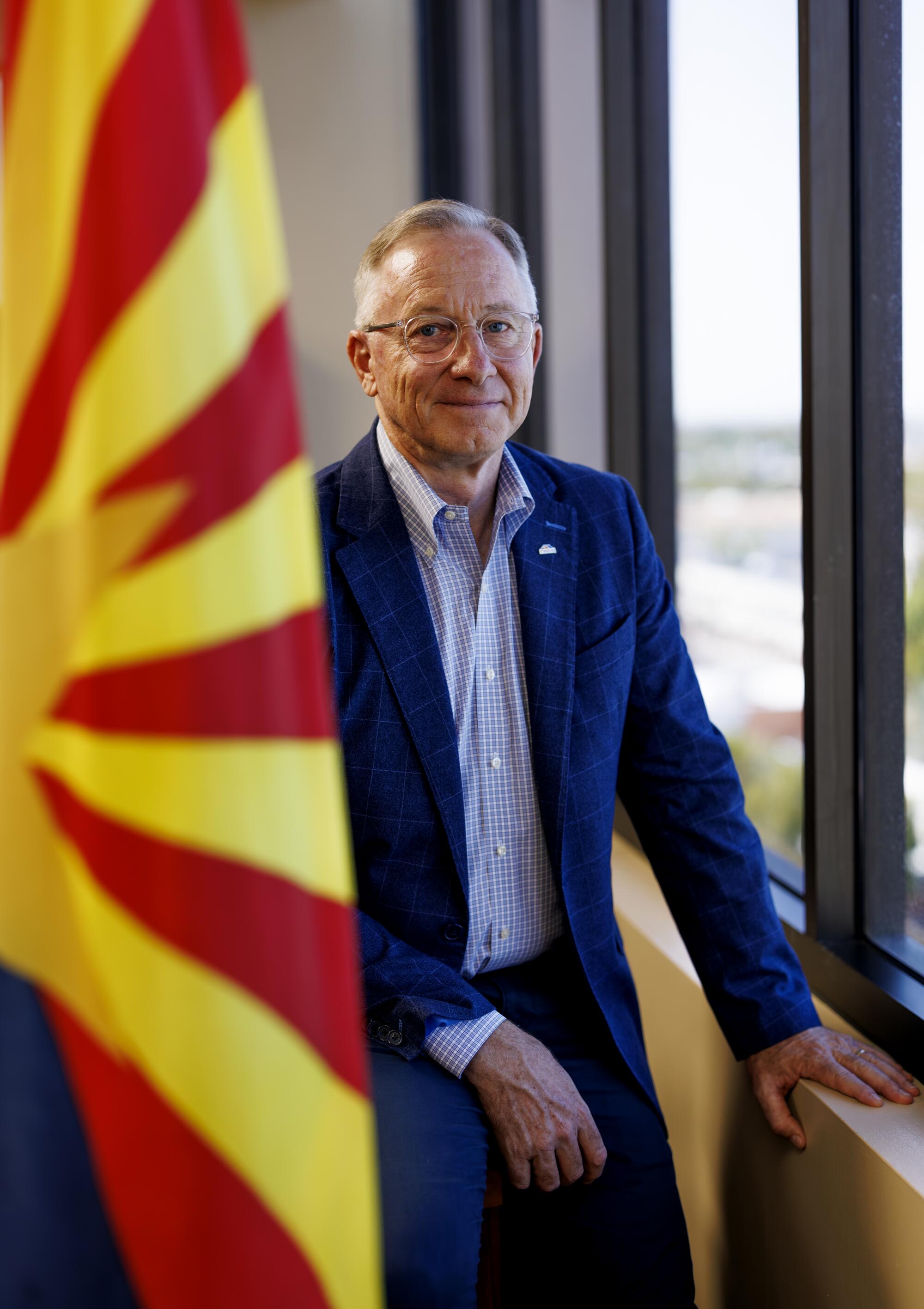
Then Giles, who ruffled feathers when he endorsed Democrats Gov. Katie Hobbs and Sen. Mark Kelly in 2022, came out with a pro-Harris media blitz: penning an op-ed in the Arizona Republic, appearing on major news networks and capping it off with a speech at the Democratic National Convention, where he said, “The Grand Old Party has been kidnapped by extremists and devolved into a cult, the cult of Donald Trump.”
Giles has repeatedly been censured by the local Republican Party. But he shrugged off the criticisms. More important, he said, choking up, are the people who approach him in grocery stores, thanking him for voicing their feelings about politics and the party.
“The fact that I have an opportunity to maybe influence the outcome of an election is something that is just too compelling for me to not participate,” Giles said.
Other prominent Mormon Republicans emerged for Harris, too, such as former Arizona Sen. Jeff Flake. While he hasn’t formally endorsed Harris, Utah Sen. Mitt Romney is a vocal opponent of Trump.
That momentum, plus the Spilsburys’ “Republicans for Harris-Walz” sign, was too much for Rowland. The “Cucks for Harris” sign went up.
Jeremy Spilsbury shot off a text to his neighbors: “Hey, I’d love to come over and talk to you tomorrow about the sign that you have in the front yard. Is there a time that works for you?”
The next day, Spilsbury found himself sitting on a couch across from Tara Rowland and her husband, who could not be reached for comment for this article. Spilsbury said he asked them to take the sign down.
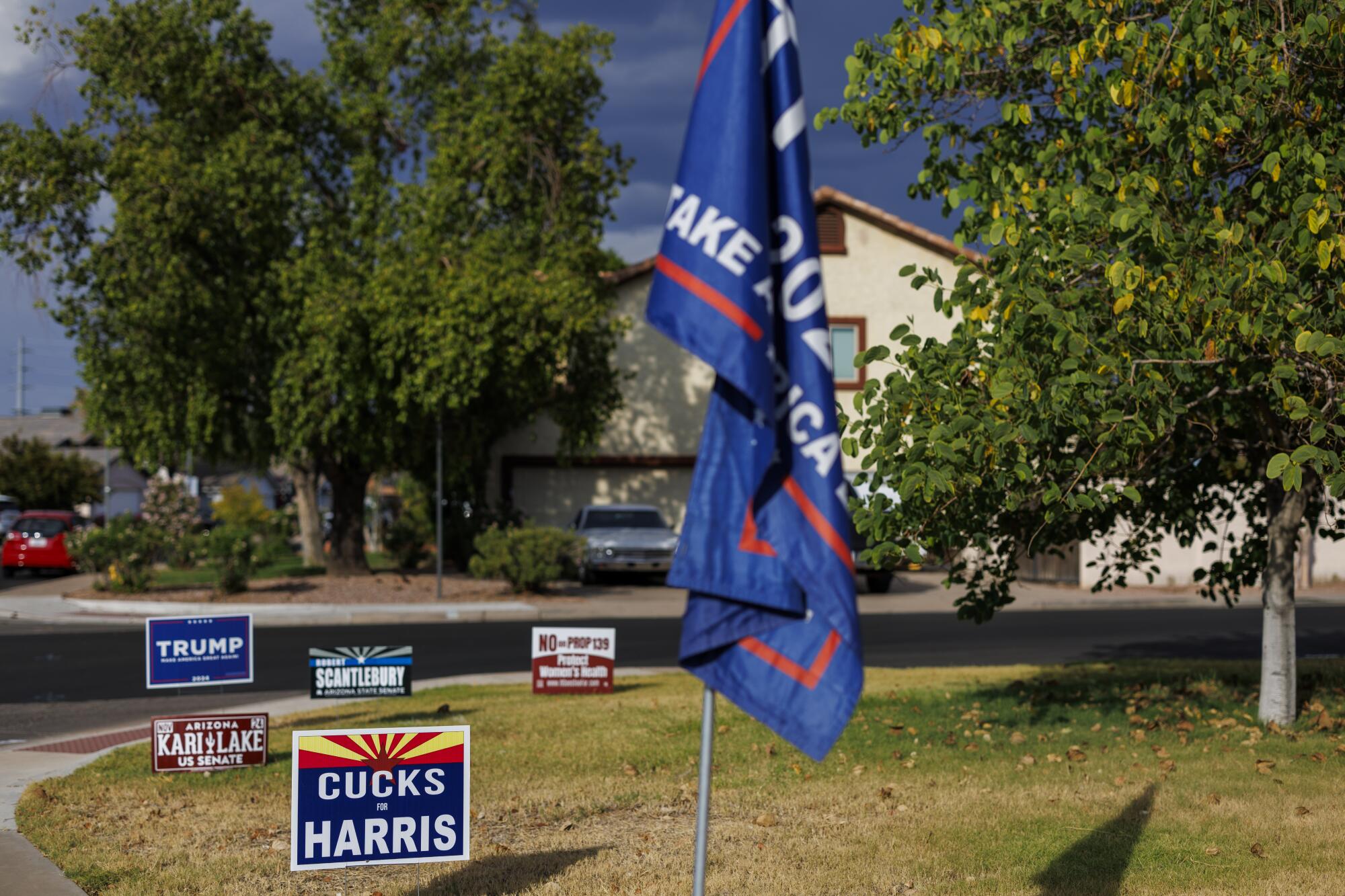
“For the sake of the relationship that we have as neighbors and at church, this isn’t good,” Spilsbury recalled saying. “This doesn’t help our relationship, and I’d hope that that would be more important to you.”
“Yeah, unity is really important to me as well. But sometimes Christ goes into the temple and turns over the tables of the money changers. It’s not always kumbaya,” Rowland told a Times reporter.
She said she just wanted a simple answer: What was Spilsbury’s problem with Trump? “You can’t vote for somebody just because you hate somebody else. And voting for someone because of your hatred for someone else, that’s not unity either. That’s Satan.”
Spilsbury said later that he hadn’t intended to debate which candidate was stronger. He wanted to know why his fellow church member would post a sign so blatantly insulting.
The neighbors argued back and forth and “voices were raised,” Spilsbury said. After about 45 minutes, he walked home.
The Rowlands’ sign stayed put — along with a Trump banner and an upside-down American flag.
More to Read
Get the L.A. Times Politics newsletter
Deeply reported insights into legislation, politics and policy from Sacramento, Washington and beyond. In your inbox three times per week.
You may occasionally receive promotional content from the Los Angeles Times.

